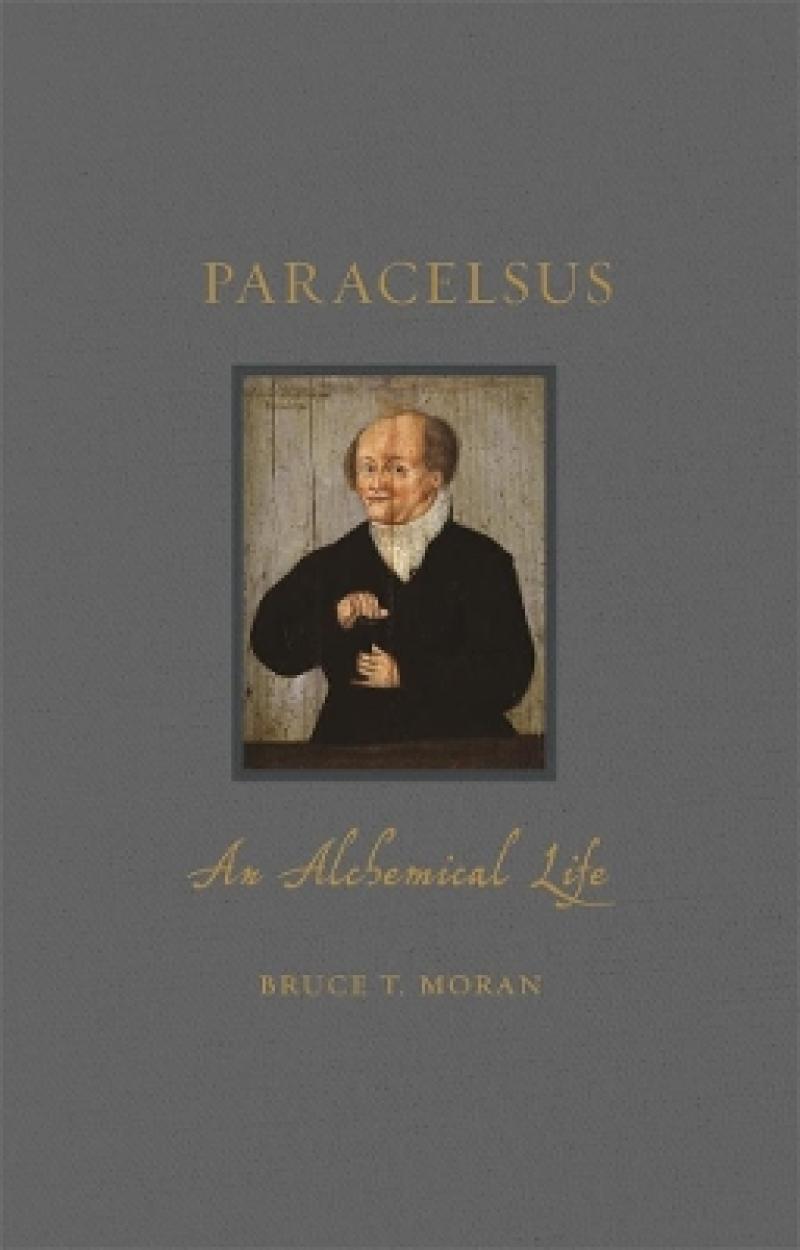This fascinating book by Moran constitutes a rich and detailed biographical study of the life and character of Theophrastus von Hohenheim (aka, Paracelsus, 1493–1541), a truly unique Renaissance man whose interests included mysticism, astrology, medicine, and alchemy. Moran paints a vivid picture of Paracelsus as a physician-alchemist and itinerant traveler of both natural and supernatural worlds, detailing how these worlds intersect. In many ways this book is much more than an account of the alchemical life of Pararcelsus, as it also delves deep into the complex period of the early Renaissance and its struggle to shed its medieval past. Unlike many other biographical accounts of the accomplishments of Paracelsus, which tend to depict him as somewhat of a charlatan, Moran tries to present a positive picture of a sincere scholar in search of a reformist view of the nature of medicine. Moran has produced an excellent book that is both historically informative and narratively engaging. Replete with wonderful illustrations, it will surely appeal to a wide audience. Highly recommended.
Choice
For those who have spent considerable time with Paracelsus and his ideas, as has Moran, this book is a deeply personal essay about both its subject and its readers, bringing to bear the results of long contemplation of Paracelsus’ writings and gems from recent German scholarship . . . This attractively made book, illustrated with a reproduced image of a painted-panel portrait of Paracelsus on the cover, which artistically places the man in the Wittenberg Reformation, beckons the reader who has not met Theophrastus Paracelsus to do so. But it is also rewarding for those familiar with the historical figure, offering an occasion on which to contemplate ourselves and reflect on exactly why we find him so ineluctably fascinating.
Social History of Medicine
<p>Deeply involved in the radical reshaping of early modern ideas and practices regarding medicine, faith, science, and philosophy, Theophrastus von Hohenheim, or Paracelsus as he is best remembered, offers up a life story that is endlessly fascinating as well as revelatory about the world in which he worked. Bruce Moran employs his Renaissance subject as a door to multiple aspects of<br />the early modern world in which he lived and worked. This slim but utterly engaging volume is less a biography and more a guided tour of Paracelsus’s life and times, beautifully informed by Moran’s own profound understanding of the alchemical philosophy that informs his subject’s wide-ranging work . . . <i>Paracelsus: An Alchemical Life</i> is an engaging, sometimes audacious, eclectic life story well-suited for readers outside the academy but also rewarding for those within.</p>
Renaissance and Reformation
Marked by an admirable even-handedness and genuine human curiosity, Moran carefully places back the life and ideas of Paracelsus into the context of Renaissance culture and natural philosophy. Moran’s prose is both accessible and engaging, and he does a wonderful job taking his readers back to a time that was very different from ours – a world that was saturated with wonder and magic, and a deep faith in the interconnectedness of mind and matter.
Forbidden Histories
Written in an impressive style, the author strives to present the reader with a vivid picture of the temporal and medico-historical environment of this fascinating Renaissance thinker. Thus, the book not only presents an introductory biography of Paracelsus, but also outlines the state of science and medicine at the turn from the Middle Ages to modern times in an exemplary manner . . . Moran has succeeded in writing a captivating and extremely well-written short biography of Paracelsus, covering his life, his teachings and his historical context. The book will be read with profit by the novice as well as the expert.
Metascience
<i>Paracelsus: An Alchemical Life</i> is an important addition to the Renaissance Lives Series. In this concise yet pivotal book, Bruce T. Moran situates Paracelsus both in his own complex sixteenth-century worldview and in his rightful place in the historiography of medicine: not as a precursor to Nazism or Freudian psychoanalysis, but as a healer of the layperson who understood and interpreted the natural world in the context of alchemy, natural magic, and Christianity. Moran expertly tackles the overwhelming, and oftentimes incorrect, 500-year literature on Paracelsus’s life and work by organizing his book to mirror Paracelsus’s <i>Septem defensiones</i> (<i>Seven Defenses</i>), allowing Paracelsus to have the last word against his many critics.
Isis Journal
Throughout his controversial life the alchemist, physician and social radical known as Paracelsus combined traditions that were magical and empirical, scholarly and folk, learned and artisanal. He endorsed both Catholic and Reformation beliefs, but believed devoutly in a female deity. He travelled constantly, learning and teaching a new form of medicine based on the experience of miners, bathers, alchemists, midwives, barber-surgeons and executioners. He argued for changes in the way the body was understood, how disease was defined and how treatments were created, but he was also moved by mystical speculations, an alchemical view of nature and an intriguing concept of creation.
Bruce T. Moran tells the story of how alchemy refashioned medical practice, and brings to light the ideas, workings and major texts of an important Renaissance figure, showing how his tenacity and endurance changed the medical world for the better, and brought new perspectives to the study of nature.
Introduction: Bones
1 Medicine Lost in a Labyrinth and the Defence of Defiant Healing
2 Seeing through the Body: Nature, Disease and What the True Physician Must Know
3 The Alchemy of Things in the Making: Medicines as Poisons and Poisons as Medicines
4 Pursuing the Arts Where God Has Placed Them: On the Road for the Sake of Learning
5 ‘I Am Ashamed of Medicine’: Love, Labour and the Spirit of Christ in the Transformation of the Secular World
6 Invisible Beings and Invisible Diseases: Magic and Insanity in an Age of Faith
7 Inventing Paracelsus: The Use and Abuse of a Renaissance Life
References
Select Bibliography
Acknowledgements
Photo Acknowledgements
Index
